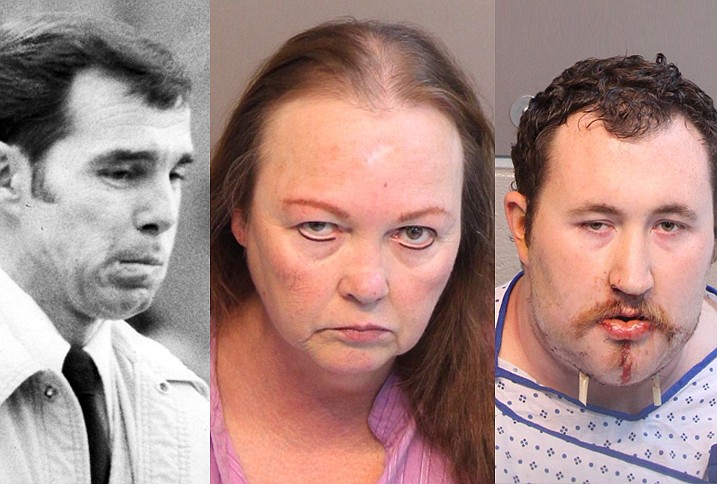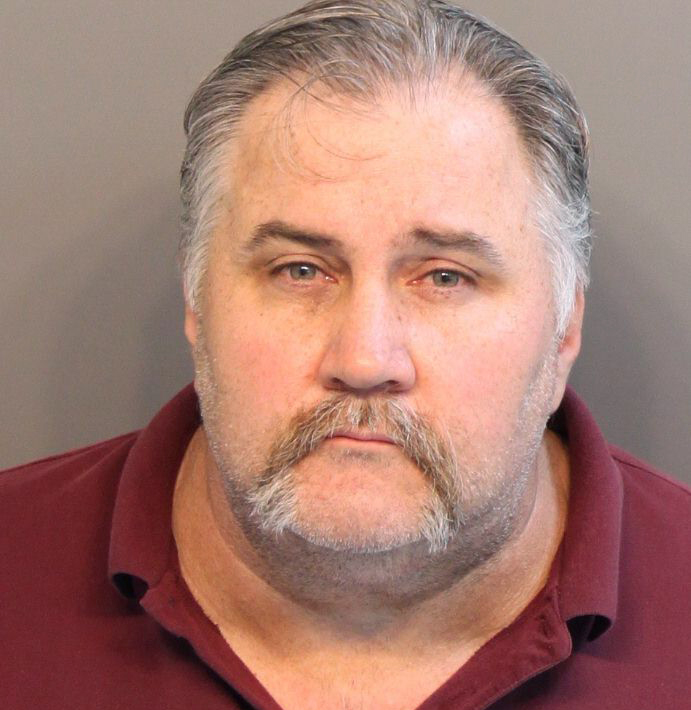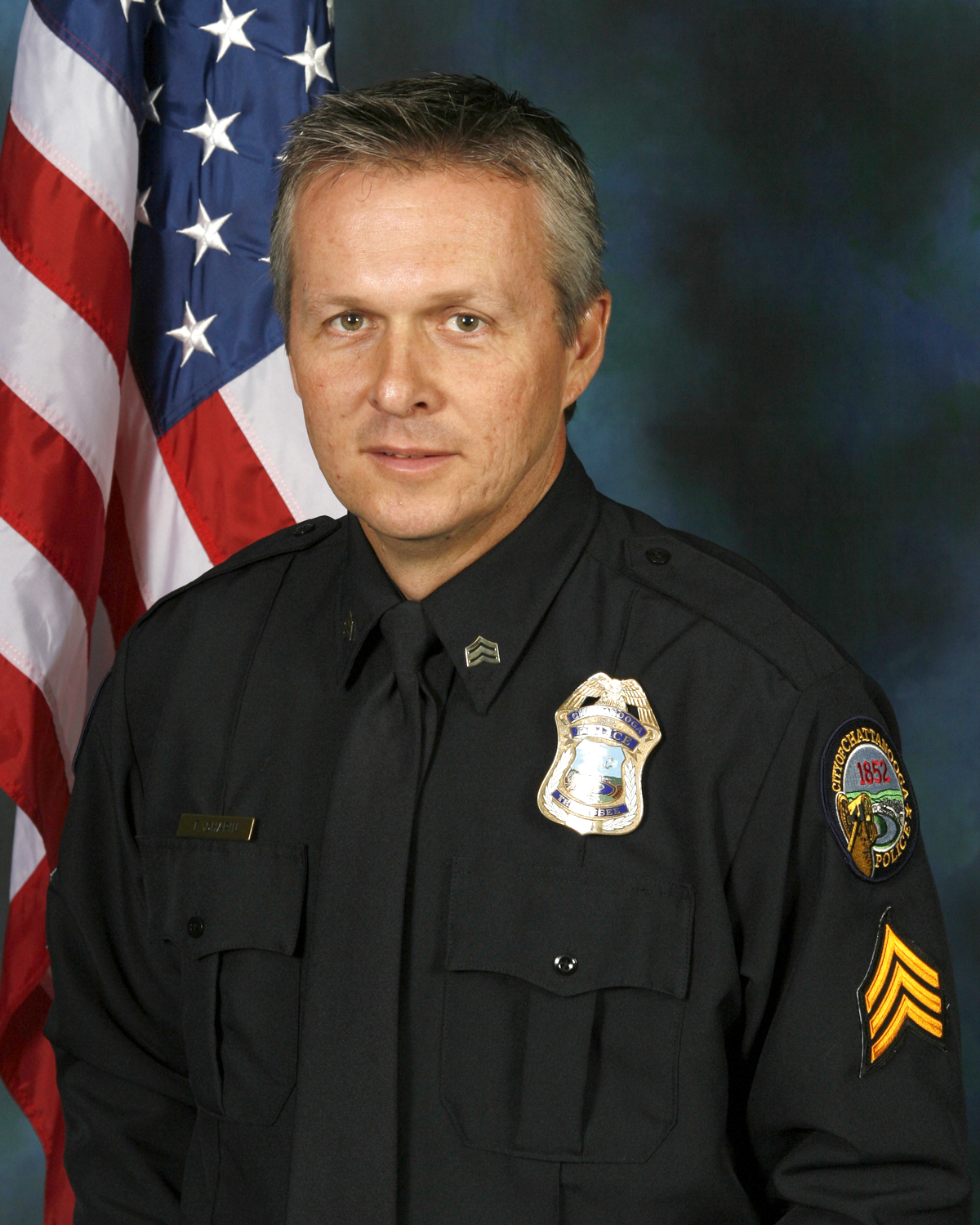EDITOR'S NOTEInformation and scenes from the decades-old crime described below are drawn from St. Johns County, Fla., court documents, news accounts and public records on marriage and death certificates. Details about recent alleged crimes involving the Mathews family derive from Tennessee state and federal court testimony, state and federal court documents from Tennessee and Colorado, newspaper archives and interviews.
TIMELINE
Here is the sequence of events in Kathleen Mathews' life and allegations involving her son, Jesse, and others according to FBI affidavits, Florida, Colorado and Tennessee state court documents, school records, Florida Times-Union and Times Free Press newspaper archives:• Dec. 31, 1953: Kathleen is born in Havre de Grace, Md. Given up to foster care along with sister.• 1972: She lies that she was sexually assaulted by six black males. Later tells boyfriend Charles Marlin Thornton the tale, inciting him to attempt escape from prison to exact revenge. He fails and receives more time.• June 1979: She works for a short time at Sawyer Air Conditioning Co., owned by Albert Sawyer, in Jacksonville, Fla.• Dec. 22, 1979: She marries Charles Thornton shortly after his release from prison. It is her third marriage. She tells him of an alleged sexual assault by Albert Sawyer, a story she later admits is false.• Jan. 21, 1980: She drives with Thornton to the Sawyers' home in St. Johns County, Fla., where Thornton shoots Sawyer to death.• Feb. 25, 1980: She is arrested with husband on murder charges. (On Aug. 27, 1980, Thornton is found guilty of murder and sentenced to death.)• Nov. 14, 1980: Kathleen pleads guilty to manslaughter and is sentenced to 15 years. She serves less than eight, half of that on a work-release program.• Dec. 1, 1982: She admits in a hearing she has control over Charles and that she had sexual relations with Albert Sawyer but was not raped.• June 4, 1983: Charles dies of natural causes while awaiting execution.• 1984: Kathleen put in prison work-release program, meets and marries Ray Vance Mathews, her fourth husband.• May 10, 1985: Jesse Ray Mathews born in Jacksonville, Fla.• 1997-98: Mathews family moves to Colorado.• Sept. 6-16, 2002: Jesse, 17, commits armed robberies in Colorado Springs, Colo. Pleads guilty to armed robbery and is sentenced to 20 years. He is eligible for parole in 2010.• 2008-09: Kathleen, Ray and daughter, Rachel Mathews, move from Colorado to Tennessee, then to Asheville, N.C.• June 11, 2010: Jesse transferred to a minimum security prison; shortly afterward he is paroled and transferred to halfway house.• Feb. 12, 2011: Jesse suspected of robbing the Cash American pawnshop in Colorado Springs, taking 16 firearms, about $10,000 and jewelry while still in custody at halfway house.• Shortly after: Mathews wires money to Rachel to buy a plane ticket and fly to Colorado. For the next several days, Rachel and Mathews' girlfriend, Amber Vlasak-Hudson, move him from hotel room to hotel room. Eventually, Jesse and Rachel buy bus tickets from Colorado to Nashville. Rachel's boyfriend, James Poteete, picks them up and, for $1,000, drives them to Asheville, where their parents live.• March 27: Jesse and a new, unnamed girlfriend, an employee at Microtel Inn, attend the R.K. Shows gun show at the National Guard Armory in Chattanooga. Jesse calls Ray, who brings 10 to 12 firearms to the girlfriend's home. She and Mathews return to the show, where he trades three firearms for an M-4 assault rifle.• April 2: Police say Mathews attempts to rob U.S. Money Shops on Brainerd and fatally shoots Chattanooga Police Sgt. Tim Chapin using weapons stolen from the Colorado pawnshop.• April 4-6: Poteete, Rachel and Kathleen try to hide guns, including four stolen in Colorado, from investigators. Poteete, Rachel, Kathleen and Ray confess to police that they knew Jesse escaped from the halfway house and robbed businesses in Colorado; that they assisted him as he ran from law officers; that they hid information from investigators; and they gave Mathews firearms even though he is a convicted felon.• April 8: Ray, Kathleen, Rachel and Poteete are arrested.• Aug. 10-Sept. 21: Rachel and Poteete plead guilty to three counts and Kathleen and Ray plead guilty to four counts. Federal prosecutors in Colorado indict Vlasak-Hudson.• Oct. 11: Jesse's next scheduled court appearance.• Nov. 14: Rachel and Poteete scheduled for sentencing.• Dec. 19: Kathleen and Ray scheduled for sentencing.
She stood in her blue prison jumpsuit, wrists shackled, looking at the table in front of her as the judge read a list of questions.
"Do you understand that by entering a plea of guilty you waive all of your rights?"
"Yes, ma'am," Kathleen Mathews replied, her face down but eyes glancing up to U.S. Magistrate Susan Lee.
To her left stood her husband, Ray Vance Mathews. He was dressed in an orange jumpsuit -- the color of men's prison uniforms in Hamilton County -- and his answers to the judge followed hers, as had many of his decisions during their 27 years together.
Her shoulders slumped as Lee read more questions about her plea, her future. On the opposite wall through windows stood the city of Chattanooga, where everything had gone terribly wrong for her family.
But she had been in this situation before, before Ray, before her other imprisoned family members were even born. In another state, before a different judge, decades ago she had pleaded guilty to manslaughter.
This time, though, as she stood in Lee's court, her family was imprisoned around her.
Her daughter Rachel, 21, sat in a jail across the county, awaiting a federal prison sentence. She had pleaded guilty to helping her brother, Kathleen's son, flee Colorado after police say he robbed three stores and later lying to police about it.
Kathleen's son, Jesse Ray Mathews, 26, was just down the street from the federal courthouse in the Hamilton County Jail, accused of murdering Sgt. Tim Chapin, a beloved Chattanooga police officer. Prosecutors want him executed for the crime.
A man close to her facing death for a crime he committed with her help -- a familiar situation for Kathleen.
Thirty-one years ago, Kathleen's former husband went to death row in Florida, where he would die of natural causes a few years before his scheduled execution. While she watched, he killed a man whom she said had made sexual advances to her. That was a lie, she later confessed.
Now her son could face the same fate.
In both cases, she played an influential role.
Kathleen, 57, has been the controlling force in her small family's life, according to several sources. She has pushed her husband to work two to three jobs at a time while isolating him and their children from his family.
Those close to the Chapin investigation say she manipulates anyone she needs to to get what she wants. A former spouse, law enforcement investigators, family members and psychologists have called her "irrational," "domineering," "manipulative," "controlling" and a "sociopath."
Two of her estranged daughters not involved in the current criminal charges would not be interviewed for this story and have distanced themselves from her. Her mother-in-law says her son, 50-year-old Ray, tried to stop the family from helping Jesse flee from Colorado to Chattanooga, where he is accused of gunning down Chapin after an April 2 robbery attempt at the U.S Money Shop on Brainerd Road.
Jesse's attorneys, Lee Davis and Bryan Hoss, declined to comment about the pending case.
Kathleen's attorney, U.S. Public Defender Anthony Martinez, said he did not want his client to speak with the media because she is awaiting sentencing.
Following Kathleen's guilty plea last week, Chattanooga Assistant Police Chief Tim Carroll said she and the other family members may not have been at the site of the botched robbery and death of Chapin but "collectively and constructively they all might as well have had their finger on the trigger the day it happened."
In 1979, Charles Marlin Thornton was paroled from prison after six years on a robbery conviction. He immediately reunited with Kathleen Frances Crawford. They'd known each other before he was sent away and were involved off and on for about eight years, according to what she later told a courts interviewer.
While Thornton was in prison, Kathleen met, married and divorced another man; served in the Army and left honorably discharged; and found a short-lived job at Sawyer Air Conditioning in Jacksonville, Fla.
She and Thornton married Dec. 22, 1979, a few months after he left prison. About that time, she told Thornton why her job at the air-conditioning company lasted such a short time.
Her boss, Albert Carroll Sawyer, told her she'd have to have sex with him to keep working there. The news enraged Thornton, who wanted revenge, wanted to beat Sawyer.
But the story should have had a familiar sound to Thornton.
Five years before, while Thornton languished in prison, Kathleen told him she had been raped by six black men outside the enlisted men's club at the Jacksonville Naval Air Station. Incensed at the thought, Thornton plotted his escape from prison to avenge the act, to protect this woman.
His escape failed, and he received more time on his sentence for the attempt.
Both of Kathleen's stories would be discounted later, the first by her own court testimony, the second by interviewers who compiled information on her background for a presentencing report years later.
But Thornton, 35 at the time, believed what his new bride told him and began planning revenge.
Almost a month later, on Jan. 21, 1980, Thornton and Kathleen sat in her red 1970 MG outside a home in St. Johns County, Fla., near St. Augustine.
Sometime between 9 p.m. and 9:45 p.m. Albert Sawyer and his wife, Robin, pulled into their garage. As they stepped out of the car, Thornton walked in behind them, holding a .38-caliber revolver in one hand and a black mask handmade from a sweater in the other.
"We have a problem to discuss," Thornton said.
Once inside the house, Thornton had the pair lie on the floor and began to tape their ankles together. But the 47-year-old Sawyer decided to fight back. He jumped up and slammed Thornton against the wall. Thornton dropped his pistol. The men scrambled for it and struggled over it.
Kathleen, standing outside the living room door, heard the noise inside, opened the door enough to see the men wrestling and fired her .25-caliber semiautomatic pistol into the room. She later would say she didn't aim and just wanted to stop the fight. Police recovered the slugs, which didn't hit anyone.
Thornton wrestled the .38-caliber from Sawyer, then shot him four times in the back as Robin ran upstairs. Thornton fled with Kathleen.
A Florida Times-Union newspaper clipping from 1980 shows a younger, thinner, blonde Kathleen in a flower-print blouse and dark pants getting out of the back of a police car in handcuffs on her way to jail shortly after police arrested her and Thornton on murder charges in Sawyer's death.
While in jail awaiting trial, Kathleen convinced a cellmate on weekend incarceration that she and her husband needed to escape. The cellmate offered to smuggle them a handgun she had found.
On May 15, 1980, jail staff charged Kathleen, Thornton and a trusty named Jimmy Rogers with conspiring to escape the jail. Kathleen had bribed Rogers with a $50 money order to have him pass messages between her and Thornton and arrange for a car to be outside the jail fence when they fled.
A St. Johns County jury found Thornton guilty of murder on Aug. 27, 1980, after 80 minutes of deliberation following a three-day trial.
While awaiting his sentencing and her next court appearance, Kathleen had Thornton send a copy of his presentencing report to her through another inmate. The report details his personal background and past armed robberies.
In her reply to him, intercepted by jailers, she tells Thornton how proud she is of his past.
"I don't think it was bad, I think it was sexy and terrific and you had a good time," she wrote. "It is nice to be able to have what you have when you want it. The only bad thing is the price you have to pay when you get caught.
"We will have our chance again," she wrote. "I am serious Charles, if we have to work something out with the devil himself, that's what we need to do!"
Prosecutors used this letter against Kathleen in later court hearings. She wrote a letter of apology to the judge in the case, excusing the letter as something she wrote to encourage her husband as he faced the death penalty.
Thornton and two of his relatives testified during the sentencing phase of his trial that he had only gone to the Sawyer house because of "tremendous pressure put on him by his irrational and domineering wife."
"I couldn't live at home if I didn't do something," Thornton said about Kathleen's allegations that Sawyer had sexually assaulted her.
Kathleen told a different story. She wrote the judge and blamed Thornton for what she termed a robbery-turned-killing. She said she only went along with him to try to prevent the crime.
On Oct. 20, 1980, the judge sentenced Thornton to death. Three weeks later, Kathleen pleaded guilty to manslaughter. The judge sentenced her to 15 years in state prison. She would be eligible for parole in eight years.
During her sentencing, Kathleen told the judge that "Mr. Sawyer never had sexual relations with me, and I wanted Mrs. Sawyer to know that and I wanted the court to know that."
In December 1982, Kathleen was back in court, this time for Thornton's attempt to use undisclosed evidence of her letters and involvement in the crime to reduce his death sentence.
An attorney questioned Kathleen about her relationship with Thornton.
Q: Were you domineering of Charles?
A: Always have been.
Q: Was it your idea to stop at the Sawyers' house?
A: Yes, it was.
Q: Did you show him where the house was?
A: Yes, I was the one who found the address.
Q: Isn't it true that the entire story concerning the prior forced sex between you and Mr. Sawyer was a made-up tale, made up after this event had occurred?
A: No, sir. I just told the Court that the man did not rape me and he did not, in fact, rape me. I did not ever deny that we had sex.
Thornton died on death row of natural causes on June 4, 1983.
Kathleen served four years in a Florida prison, where she took courses in astrology, horticulture and philosophy of the mind. She told an interviewer during her presentencing evaluation that her best subject at Jacksonville (Fla.) Central High School was psychology, in which she earned a B.
She was freed in 1984 on a work-release program. Within months she met Ray Vance Mathews and shortly afterward they married.
Jesse Ray Mathews was born on May 10, 1985.
Verona Mathews, 89, met Kathleen shortly after Ray did and was surprised when the couple suddenly married. She learned of the manslaughter conviction and prison time only after the couple had wed.
Interviewed by telephone from her Florida home, Verona said that, from the beginning, her daughter-in-law was very jealous of others and possessive of Ray and her children. Kathleen rarely brought them to visit or allowed them to spend much time with her, Verona said.
"There was just something about her I didn't like," Verona said. "She's very, very, very manipulative. She had to be in control or else."
Verona said her son Ray worked two or three jobs at a time to please Kathleen.
"[Kathleen] just ran the whole show," she said. "Whatever she said, they did."
Ray and Kathleen filed for bankruptcy in 1990 while living in Jacksonville. Seven years later they moved to Colorado Springs, Colo.
During hearings in Chattanooga federal court this spring, prosecutors shared information about Jesse's stealing a pickup truck when he was 12 or 13 years old. When he brought the truck home, his parents hid the act from police.
In 2002, when he was 17, Jesse robbed at least two stores, was arrested and pleaded guilty. A judge sentenced him to 20 years for armed robbery. While he sat in prison, Kathleen and Ray again filed bankruptcy in 2004.
Sometime between 2008 and 2009, Kathleen, Ray and Rachel moved to Tennessee, staying briefly before settling in Asheville, N.C., where Ray got work as a grocery store meat cutter.
Jesse moved to a minimum security prison the summer of 2010, then to a halfway house on parole that fall. Verona said when she talked with Jesse, he seemed to enjoy his work and was doing well at the halfway house.
A Facebook profile photograph Jesse took with a cell phone camera in front of a mirror shows a full-chest tattoo of pistols below his neck, surrounded by flames and the words "Tools of the Trade."
On the condition of anonymity, sources close to the Chapin investigation said that either Kathleen called Jesse or had Rachel call and tell him that the family was having money problems and he needed to take care of it in any way he could.
Colorado police investigators believe Jesse robbed three businesses in Colorado Springs between Jan. 22 and Feb. 12 this year -- a Carl's Junior fast-food restaurant, a Walgreens pharmacy and a Cash America pawnshop. Police think he was still living in the halfway house at the time of all three robberies.
A federal indictment and police affidavit state that Jesse's girlfriend in Colorado, Amber Vlasak-Hudson, helped him book hotel rooms throughout the city during the robberies and drove him to a Denver bus depot to flee the state after the last one.
He took a bus to Nashville and, at the city's bus depot, Rachel met him and traveled with him to Asheville. Once there, the family picked up stakes and moved to Chattanooga. Witnesses saw Jesse, Ray and Kathleen moving into the Microtel Inn on McCutcheon Road on March 6.
On March 16, Ray and Kathleen moved into a house on Webb Oakes Court off Bonny Oaks Drive. Jesse was staying with an unnamed girlfriend in Chattanooga. When contacted for this story, she declined to comment. She has not been charged in the criminal case.
Jesse and the unnamed girlfriend went to the R.K. Shows gun show on March 27 at the Chattanooga National Guard Armory. After talking with someone at the show, Jesse called Ray and told him to "bring the family collection" -- 10 to 12 of the firearms police say Jesse stole in the Colorado pawnshop robbery.
Jesse traded three of those weapons for an M-4 assault rifle.
During this time, police say Kathleen sold some of the stolen jewelry at local pawnshops and scouted which ones would be good targets for a robbery. Investigators found two of those jewelry pieces at the U.S. Money Shops on Brainerd Road a few weeks later.
Police say Jesse walked into the U.S. Money Shops on April 2 armed with two pistols and wearing a bulletproof vest. He ordered employees to the back and took the manager to open a safe.
During the robbery, police say, Jesse shot and wounded Chattanooga police Officer Lorin Johnston, one of the first officers to respond to a silent alarm tripped by a store employee.
In court testimony during preliminary hearings, witnesses said that, as Jesse traded gunshots with police through the front of the store, store employees escaped through a side entrance.
Jesse followed and jogged around the back of the building, witnesses said. Chapin arrived in his patrol car, which he used to bump into Jesse, causing him to drop his pistol.
Chapin got out of the car and fired a Taser at Jesse, which knocked him down briefly. He rose, pulled a concealed pistol from his waistband and began shooting at Chapin. Chapin drew his weapon and the two traded gunfire until one of Jesse's bullets struck and killed the police officer.
A few moments later, police subdued Jesse after he turned and walked away from Chapin's body.
On April 8, police arrested Kathleen, Ray, Rachel and her boyfriend, James Poteete, on federal charges that they aided Jesse when he fled Colorado, helped him while he was in Chattanooga and lied to police about evidence after his arrest.
On Aug. 10, Rachel and Poteete pleaded guilty to conspiring to obstruct justice and two counts of accessory after the fact. They await sentencing by U.S. District Judge Harry "Sandy" Mattice on Nov. 14.
 Chattanooga police squad cars and crime scene vehicles crowd the parking lot of the U.S. Money Shops store on Brainerd Road on Saturday afternoon. A Chattanooga police officer was fatally shot and another wounded in a gunbattle with a robbery suspect.
Staff photo by Jake Daniels/Chattanooga Times Free Press
Chattanooga police squad cars and crime scene vehicles crowd the parking lot of the U.S. Money Shops store on Brainerd Road on Saturday afternoon. A Chattanooga police officer was fatally shot and another wounded in a gunbattle with a robbery suspect.
Staff photo by Jake Daniels/Chattanooga Times Free PressKathleen and Ray pleaded guilty Wednesday to the same three counts as Rachel and an additional count of transferring firearms to a felon. They are scheduled to be sentenced on Dec. 19. The maximum sentence on the most severe charge is 20 years.
Jesse faces the possibility of the death penalty if convicted in state court. His next appearance before Criminal Court Judge Barry Steelman is scheduled for Oct. 11.
He's been charged with first-degree murder, three counts of attempted first-degree murder for firing at police and one count of aggravated robbery.
Local psychologist Dr. David Solovey has testified in death penalty cases as an expert witness but is not involved in any of the Mathewses' cases. Solovey said that if Jesse is found guilty of killing Chapin, he is ultimately responsible.
But he could have been influenced by his mother's personality, which shows signs of a classic sociopath -- someone who is totally manipulative, has very little feeling of guilt or anxiety and will do or say almost anything to get what he or she wants.
"[Sociopaths] feel bad usually when they get caught, but the feeling bad is not too deep," Solovey said in a recent interview.
A sociopath is a predator on the prowl for victims and that includes family members, who would be seen as pawns to be used to accomplish the sociopath's goals, even if it meant the relatives would suffer the consequences, he said.
Kathleen's involvement in the 1980 murder and her relationship with her son, perhaps influencing him to leave the Colorado halfway house to help her with financial problems, are sociopathic traits, Solovey said.
Kathleen's past behavior shows she has "no regard for anything other than self-interest" and is someone who can influence people to do things against their best interests.
Dr. Jay Corzine, president of the Homicide Research Working Group and a sociology professor at the University of Central Florida, said parents naturally have a "really strong impact" on their children.
"In most families, parents don't try to guide their children into crime, but in some cases that happens," said Corzine, who has no involvement in the Mathewses' cases. "That has a tremendous impact."
Based on a cursory review of the case, Corzine said it looks as though Kathleen was pulling the strings on other family members just as she did with Jesse while he was in Colorado.
"A classic sociopath personality," he said. "Most sociopaths are careful about breaking the law, and it seems like when it gets to the serious stuff she, in essence, influences somebody else to do it."
Verona said that, by talking with Rachel and other family members, she believes Ray tried to stop them from continuing to help Jesse and arm him, but ultimately Kathleen decided they would.
His grandmother said if Jesse is convicted of killing Chapin, he should be punished.
"I believe you do the crime, you do the time," she said. "But I pray that they give him life instead of death. I pray for the fallen policeman and his family all the time. I know they're hurting."





